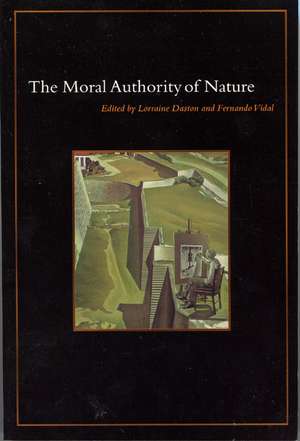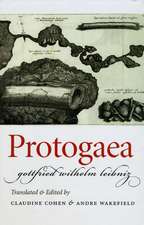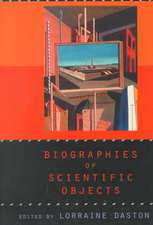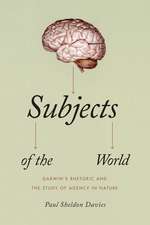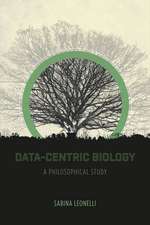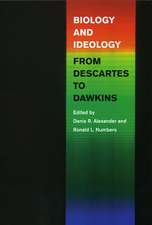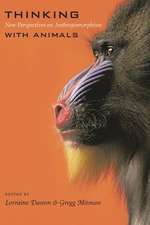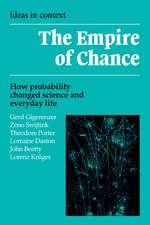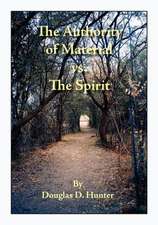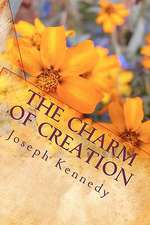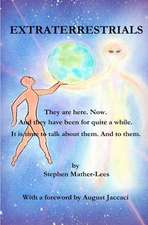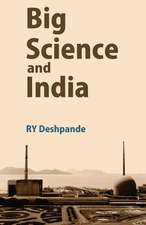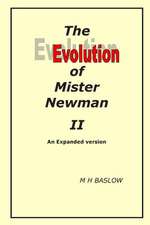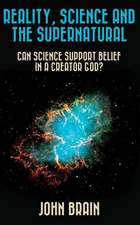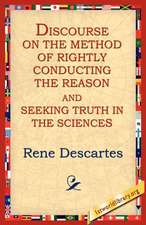The Moral Authority of Nature
Editat de Lorraine Daston, Fernando Vidalen Limba Engleză Paperback – 15 dec 2003
For thousands of years, people have used nature to justify their political, moral, and social judgments. Such appeals to the moral authority of nature are still very much with us today, as heated debates over genetically modified organisms and human cloning testify.
The Moral Authority of Nature offers a wide-ranging account of how people have used nature to think about what counts as good, beautiful, just, or valuable. The eighteen essays cover a diverse array of topics, including the connection of cosmic and human orders in ancient Greece, medieval notions of sexual disorder, early modern contexts for categorizing individuals and judging acts as "against nature," race and the origin of humans, ecological economics, and radical feminism. The essays also range widely in time and place, from archaic Greece to early twentieth-century China, medieval Europe to contemporary America.
Scholars from a wide variety of fields will welcome The Moral Authority of Nature, which provides the first sustained historical survey of its topic.
Contributors:
Danielle Allen, Joan Cadden, Lorraine Daston, Fa-ti Fan, Eckhardt Fuchs, Valentin Groebner, Abigail J. Lustig, Gregg Mitman, Michelle Murphy, Katharine Park, Matt Price, Robert N. Proctor, Helmut Puff, Robert J. Richards, Londa Schiebinger, Laura Slatkin, Julia Adeney Thomas, Fernando Vidal
The Moral Authority of Nature offers a wide-ranging account of how people have used nature to think about what counts as good, beautiful, just, or valuable. The eighteen essays cover a diverse array of topics, including the connection of cosmic and human orders in ancient Greece, medieval notions of sexual disorder, early modern contexts for categorizing individuals and judging acts as "against nature," race and the origin of humans, ecological economics, and radical feminism. The essays also range widely in time and place, from archaic Greece to early twentieth-century China, medieval Europe to contemporary America.
Scholars from a wide variety of fields will welcome The Moral Authority of Nature, which provides the first sustained historical survey of its topic.
Contributors:
Danielle Allen, Joan Cadden, Lorraine Daston, Fa-ti Fan, Eckhardt Fuchs, Valentin Groebner, Abigail J. Lustig, Gregg Mitman, Michelle Murphy, Katharine Park, Matt Price, Robert N. Proctor, Helmut Puff, Robert J. Richards, Londa Schiebinger, Laura Slatkin, Julia Adeney Thomas, Fernando Vidal
Preț: 330.42 lei
Nou
Puncte Express: 496
Preț estimativ în valută:
63.23€ • 68.96$ • 53.31£
63.23€ • 68.96$ • 53.31£
Carte tipărită la comandă
Livrare economică 24 aprilie-08 mai
Preluare comenzi: 021 569.72.76
Specificații
ISBN-13: 9780226136813
ISBN-10: 0226136817
Pagini: 526
Ilustrații: 6 halftones, 11 line drawings
Dimensiuni: 152 x 229 x 36 mm
Greutate: 0.71 kg
Ediția:1
Editura: University of Chicago Press
Colecția University of Chicago Press
ISBN-10: 0226136817
Pagini: 526
Ilustrații: 6 halftones, 11 line drawings
Dimensiuni: 152 x 229 x 36 mm
Greutate: 0.71 kg
Ediția:1
Editura: University of Chicago Press
Colecția University of Chicago Press
Notă biografică
Lorraine Daston is the director of the Max Planck Institute for the History of Science in Berlin. She is the author of Classical Probability in the Enlightenment, coauthor of Wonders and the Order of Nature, 1150 1750, and editor of Biographies of Scientific Objects, the last published by the University of Chicago Press.
Fernando Vidal is a research scholar at the Max Planck Institute for the History of Science. He is author of Piaget before Piaget and the forthcoming Analyse et sauvegarde de l'âme au siècle des Lumières.
Fernando Vidal is a research scholar at the Max Planck Institute for the History of Science. He is author of Piaget before Piaget and the forthcoming Analyse et sauvegarde de l'âme au siècle des Lumières.
Cuprins
Introduction: Doing What Comes Naturally
Lorraine Daston and Fernando Vidal
PART ONE. VALUES
1. Measuring Authority, Authoritative Measures: Hesiod's Works and Days
Laura M. Slatkin
2. Nature in Person: Medieval and Renaissance Allegories and Emblems
Katharine Park
3. Burning The Fable of the Bees: The Incendiary Authority of Nature
Danielle Allen
4. Attention and the Values of Nature in the Enlightenment
Lorraine Daston
5. The Erotic Authority of Nature: Science, Art, and the Female during Goethe's Italian Journey
Robert J. Richards
6. Nature and Bildung: Pedagogical Naturalism in Nineteenth-Century Germany
Eckhardt Fuchs
7. Economics, Ecology, and the Value of Nature
Matt Price
PART TWO. NECESSITY AND FREEDOM
8. Trouble in the Earthly Paradise: The Regime of Nature in Late Medieval Christian Culture
Joan Cadden
9. Nature on Trial: Acts "Against Nature" in the Law Courts of Early Modern Germany and Switzerland
Helmut Puff
10. Onanism, Enlightenment Medicine, and the Immanent Justice of Nature
Fernando Vidal
11. Ants and the Nature of Nature in Auguste Forel, Erich Wasmann, and William Morton Wheeler
A. J. Lustig
12. "To Become As One Dead": Nature and the Political Subject in Modern Japan
Julia Adeney Thomas
13. Liberation through Control in the Body Politics of U.S. Radical Feminism
Michelle Murphy
PART THREE. BOUNDARIES
14. Complexio/Complexion: Categorizing Individual Natures, 1250-1600
Valentin Groebner
15. Human Experimentation in the Eighteenth Century: Natural Boundaries and Valid Testing
Londa Schiebinger
16. Nature and Nation in Chinese Political Thought: The National Essence Circle in Early-Twentieth-Century China
Fa-ti Fan
17. When Pollen Became Poison: A Cultural Geography of Ragweed in America
Gregg Mitman
18. Three Roots of Human Recency: Molecular Anthropology, the Refigured Acheulean, and the UNESCO Response to Auschwitz
Robert N. Proctor
List of Contributors
Bibliography
Index
Lorraine Daston and Fernando Vidal
PART ONE. VALUES
1. Measuring Authority, Authoritative Measures: Hesiod's Works and Days
Laura M. Slatkin
2. Nature in Person: Medieval and Renaissance Allegories and Emblems
Katharine Park
3. Burning The Fable of the Bees: The Incendiary Authority of Nature
Danielle Allen
4. Attention and the Values of Nature in the Enlightenment
Lorraine Daston
5. The Erotic Authority of Nature: Science, Art, and the Female during Goethe's Italian Journey
Robert J. Richards
6. Nature and Bildung: Pedagogical Naturalism in Nineteenth-Century Germany
Eckhardt Fuchs
7. Economics, Ecology, and the Value of Nature
Matt Price
PART TWO. NECESSITY AND FREEDOM
8. Trouble in the Earthly Paradise: The Regime of Nature in Late Medieval Christian Culture
Joan Cadden
9. Nature on Trial: Acts "Against Nature" in the Law Courts of Early Modern Germany and Switzerland
Helmut Puff
10. Onanism, Enlightenment Medicine, and the Immanent Justice of Nature
Fernando Vidal
11. Ants and the Nature of Nature in Auguste Forel, Erich Wasmann, and William Morton Wheeler
A. J. Lustig
12. "To Become As One Dead": Nature and the Political Subject in Modern Japan
Julia Adeney Thomas
13. Liberation through Control in the Body Politics of U.S. Radical Feminism
Michelle Murphy
PART THREE. BOUNDARIES
14. Complexio/Complexion: Categorizing Individual Natures, 1250-1600
Valentin Groebner
15. Human Experimentation in the Eighteenth Century: Natural Boundaries and Valid Testing
Londa Schiebinger
16. Nature and Nation in Chinese Political Thought: The National Essence Circle in Early-Twentieth-Century China
Fa-ti Fan
17. When Pollen Became Poison: A Cultural Geography of Ragweed in America
Gregg Mitman
18. Three Roots of Human Recency: Molecular Anthropology, the Refigured Acheulean, and the UNESCO Response to Auschwitz
Robert N. Proctor
List of Contributors
Bibliography
Index
